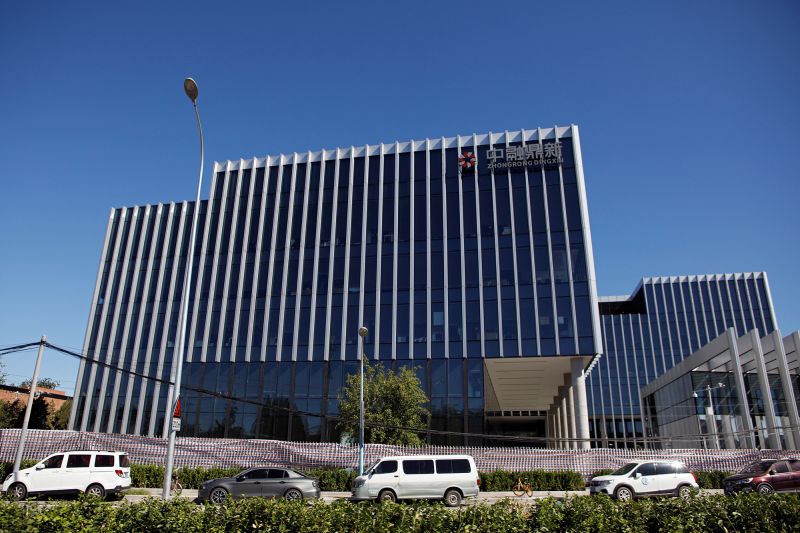
Another wave of corporate executives vanish in China, suspected association with embattled shadow lender Zhongzhi

Two high-ranking Chinese executives mysteriously vanish from companies affiliated with troubled shadow bank Zhongzhi, raising concerns about their safety and adding to the conglomerate's ongoing woes
Two Chinese business executives working for companies owned by the struggling financial conglomerate Zhongzhi have disappeared, as confirmed by their employers. This news follows shortly after Chinese authorities initiated a criminal probe into the troubled shadow bank, which is among China's biggest. Last week, Zhongzhi informed its investors that it is in a state of "severe insolvency."
Dalian My Gym Education Technology, a publicly traded education company, announced on Thursday that they have been unable to contact their chairwoman, Ma Hongying. The company stated that they are uncertain of the specific reason for being unable to reach Ms. Ma Hongying.
Xinjiang Tianshan Animal Husbandry Bio-engineering, a company that breeds cattle and dairy cows in the Xinjiang region, reported on the same day that its chairman, Ma Changshui, could not be reached. Both companies are controlled by Zhongzhis investment units and the missing executives have had longstanding connections with the conglomerate.
The office building of Zhongrong International Trust, a trust company partially owned by Zhongzhi Enterprise Group, in Beijing.
Florence Lo/Reuters
Ma Hongying, 38, has been the chief financial officer of Zhongzhi since 2015. According to the company, she was named chairwoman of Dalian My Gym Education Technology in 2022, following Zhongzhi's acquisition of the company through a share purchase agreement.
At 59 years old, Ma Changshui holds the position of vice president at Zhongzhi, in addition to his role at an animal breeding company. He previously worked as the chief risk control officer of the group.
Zhongzhi, based in Beijing, oversees nearly a dozen asset and wealth management firms. It is considered a part of China's $3 trillion "shadow banking" industry, which is an important source of finance in the country. This term typically refers to financing activities that occur outside the formal banking system, either through off-balance-sheet activities by banks or through non-bank financial institutions, such as trust firms.
It did not immediately respond to a request for comment.
The companys financial problems began after its founder, Xie Zhikun, died of a heart attack in December 2021.
Worries about Zhongzhi's financial situation arose in August when a trust it partly owns, Zhongrong International Trust, failed to make payments to its investors. This led to protests and raised concerns that a downturn in China's property market could have broader financial implications. Zhongzhi's trust banking division has invested approximately ten percent of its funds in real estate, but many companies in its real estate portfolio have faced financial difficulties, including bankruptcy filings.
Last week, Zhongzhi issued an apology to its investors and admitted that its liquidity had been completely depleted. The company attributed its internal management crisis to the passing of its founder and the subsequent departure of key executives. In response, Beijing police launched an investigation into the company's wealth management unit, citing suspicions of illegal activities. They also confirmed the implementation of "mandatory criminal measures" against several suspects, including an individual named Xie.
Chinese business leaders are facing increasing pressure as President Xi Jinping ramps up regulatory crackdowns on companies and tightens Beijing's control over the economy. In the past year, multiple top executives in sectors such as technology, finance, and real estate have either disappeared, been detained, or become subjects of corruption investigations.
Last month, it was reported that the chairman and CEO of Chinese video game live-streaming platform DouYu had disappeared. The company later confirmed that he had been arrested. Even international consulting firms are affected by the crackdown in the world's second-largest economy, facing increased risks such as police raids and staff detentions.









